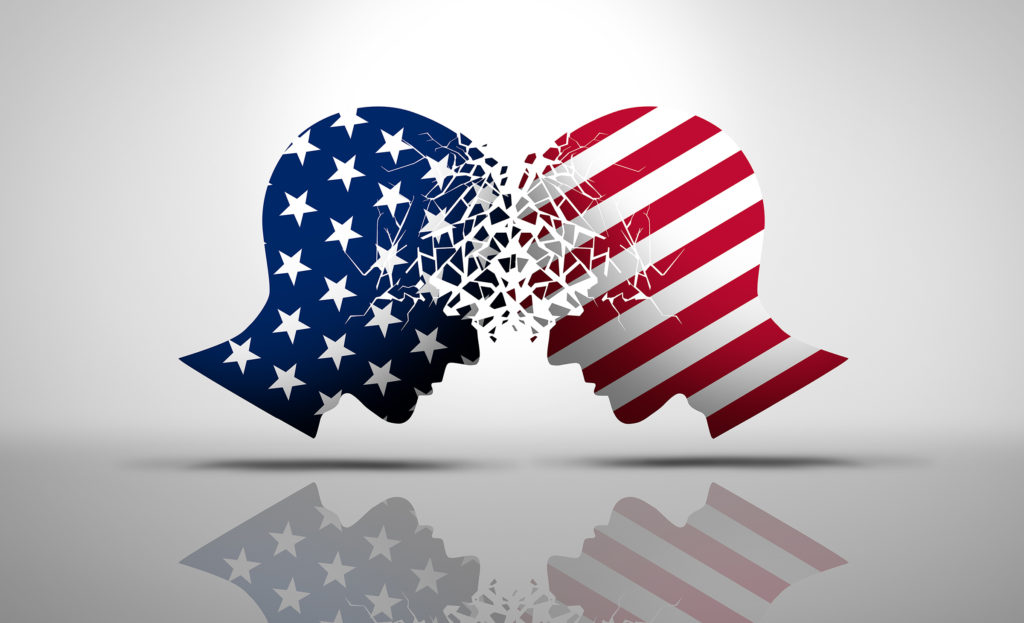CONSIDER FOR A MOMENT what our planet might be like if the human species had not come into existence. Land masses and oceans would be teeming with wildlife, air would be clean, weather patterns would change slowly (barring cataclysmic events such as meteor strikes), and one season would follow another. But humans did evolve as a species—and look at the planet now.
Currently populated by 7.6 billion human beings who have built an estimated 4,037 cities across the world, each of which contains more than 100,000 people, the planet is suffering from the effects of human activities on land, water and in the air. From the extraction of various sorts of resources from the earth (think oil, gas, lumber and minerals) to agricultural practices; to the harvesting of sea wildlife; to the pollution of oceans, fresh water sources and the air— human activities today continue a long history of planetary destruction. Short-sighted human activity has been so extreme that it has triggered what we euphemistically call “climate change.” And that’s just considering the planet itself. We also harm ourselves and other humans when we wage war, abuse drugs and alcohol, and commit murder and suicide, for example. What is it about us? Negative outcomes from our reckless behavior stymy us: we don’t know how to prevent war, eliminate poverty, or reverse climate change.
How could humans have created so many problems they can’t solve? Maybe it has something to do with our nature. Let’s take a look at that. Perhaps being aware of the traits that make us human can help us figure out some new approaches to these problems.
We humans have built-in limitations that trip us up all the time. You rarely see our nature cited as a cause for anything, but that’s understandable since it’s part of who we are. Even so, it is a causal factor in many situations, and when it is, we can’t seem to recognize that. If we want to be more successful at solving the complex problems we face as a species, we need to be more aware of the human traits that helped cause them.
What is human nature?
It’s something we all share, of course. It’s basic to our species, and all its aspects interacting together differentiate us from other species. The problem is, it’s hard to define. In ancient Greece, philosophers such as Aristotle tried to do that. Modern thinkers—psychologists, biologists and anthropologists—have their own perspectives. But each of us can gain an experiential sense of human nature from our interactions with others.
It can be instructive to look at specific recent or continuing situations that defy our complete understanding to see if they expose the way human nature operates. Here are some. 1) When Donald Trump won the 2016 presidential election, most people were surprised and were wondering how that was possible. 2) White evangelicals continue to support Trump even though it’s well known that he violates many of their moral codes. 3) Sexual inequality and harassment have been pervasive problems for a long time in many cultures. 4) People willingly and happily engage in behavior that threatens their lives, marriages, children, health and livelihood. 5) There are people who deny the reality of climate change even though the preponderance of evidence shows it’s real and it’s largely caused by human behavior. We’ll look briefly at each to try to see human nature at work.
2016 Presidential Election. Among other causes for the 2016 election results, the Democrats may were unaware of their own limited vision during this campaign. There’s growing agreement that they were predominately tuned in to the Democratic majorities on the coasts and less tuned into the middle and southern parts of the country. Democratic leaders didn’t seem to respond adequately to their values and concerns. The campaign may have calculated that white working-class voters in the mid-west were unwinnable.
An interesting video by Joel Barker, described on the Chaos Institute’s Resources page and called “The Business of Paradigms,” points out that our brains are built to see only what fits into the mental frameworks we use to make sense of our world. Barker demonstrates this effect by having playing cards rapidly flip in and out of sight on the screen several times after asking viewers to identify all the cards. Each time, he slows the speed of the flipping cards but predicts viewers still won’t be able to see them all. Then he explains. Some of the cards have the wrong color: a few that are usually black were red and vice versa. They didn’t fit our template, so we literally couldn’t see them. Our minds allow us to see only what fits into our already formed mental structures. And when this happens, we aren’t even aware of it.
So perhaps Democrats couldn’t see what was going on with voters who ended up in Trump’s camp. Maybe they were blindsided by their own mental templates. We all have that kind of blindness; it’s part of human nature.
White evangelicals still supporting Trump. According to a 2018 poll, 75% of white evangelicals supported Trump despite his frequent behaviors that run counter to their values. (Robert P. Jones, April 20, 2018, “White Evangelicals Can’t Quit Trump,” The Atlantic.) And in an August 30, 2021, announcement by the Pew Research Center, 59% of white Americans who attend religious services regularly voted for Trump in 2020. (Pew Research Center website). Their support for a man who regularly shows his disdain for Christian values demonstrates the complexity of human nature. We don’t simply have values—we have values AND we prioritize and compartmentalize them. We may have unconscious needs that shape our thinking and behavior in ways that override our values. Some of our values reside outside our awareness, especially if they are not espoused by our social groups. We can also skillfully rationalize decisions to ditch values that conflict with others or that meet those unconscious needs. Katha Pollitt writes
“For decades, believers have boasted of their superior virtue, especially in matters of sex and marriage and parenting and social propriety. They’ve blasted premarital and extramarital sex, LGBTQ people, divorce, pornography, sex work, foul language, crude behavior, and not being a Christian—as they define “Christian”—blaming these things for everything from 9/11 to Hurricane Katrina. They never get tired of going after Bill Clinton for his infidelities and Hillary Clinton for “enabling” them. (How frustrating it must have been for them that Barack Obama, the Muslim Kenyan communist, spent eight years in the White House with nary a whiff of scandal!) Now they’ve sold their souls to Donald Trump, who has partaken freely of practically every vice and depravity known to man. (Katha Pollitt, “Why Evangelicals—Still!—Support Donald Trump,” March 22, 2018, Reproductive Rights.)
Pollitt goes on to quote Michael Gerson of The Atlantic, from his eloquent essay, “The Last Temptation,” where he said, “The moral convictions of many evangelical leaders have become a function of their partisan identification.” In other words, their politics “trump” morality. And they rationalize when this happens. According to Gerson, James Dobson explains that Trump is a “baby Christian.” So it’s OK that he lies all the time, brags about grabbing women’s private parts and has affairs. It’s important to realize that we tend to think people’s values are indelibly tattooed on their brains, instead of understanding they can change with the wind. We’re basically all chameleons to a certain extent, chameleons with values that we mess around with if we need to. It’s our nature.
Resurgence of white supremacy. The evils of racism and white supremacy, two sides of the same coin, are surging again. We keep trying to extinguish them, but they recur as predictably as the seasons. Why? Time and space are too limited here to enumerate and discuss all the reasons for racism, but one main cause is that it’s human nature to fear “the other,” people who are significantly different from ourselves. We think of people who seem to be outside our own tribe as unknown quantities, and therefore untrustworthy and sometimes downright scary.
We humans need to belong to a tribe of people with whom we share things in common. Your tribe might be members of your family, religion, racial or gender identity group, fellow alums, or members of your political party. But whatever the group, when we’re with our tribe, we feel like we belong and our identity is affirmed.
Our tribal loyalty can have far-reaching effects, and it can also be manipulated. For example, studies have shown that people with low incomes are especially nationalistic. No doubt a part of that is tribalism—nationality is an important identity for this group, since many other desirable identities are beyond their grasp. And tribalism becomes a higher priority, a more felt need, during times of insecurity. Donald Trump intentionally stirs up chaos and uncertainty; he has said so. He may well intuit that in the swirls of confusion, his base will become more and more loyal to him and he will become the focus of their tribal identity, so he can do anything—murder someone on the street, as he said in one of his speeches—and no one will care. He’s right! If that happened tribal identity and values would out-prioritize the murder taboo. Loyal followers would say, “He must have had a good reason to do it.” Tribal affinity is part of our nature, and it can be more important to us than other needs or values.
The prevalence of sexual assault. Is sexual assault linked to patriarchy? And is patriarchy an aspect of the human condition? There isn’t total agreement as to patriarchy’s origin or nature. It has been defined as a system of society or government in which men hold the power and women are largely excluded from it (Google Dictionary), or as a social system in which males hold primary power and predominate in roles of political leadership, moral authority, social privilege and control of property (Wikipedia).
In a book by Richard Wrangham, a professor of biological anthropology at Harvard University, we find this description of patriarchy.
“Patriarchy is worldwide and history-wide, and its origins are detectable in the social lives of chimpanzees. It serves the reproductive purposes of the men who maintain the system. Patriarchy comes from biology in the sense that it emerges from men’s temperaments, out of their evolutionarily derived efforts to control women and at the same time have solidarity with fellow men in competition against outsiders.” (Richard Wrangham, Demonic Males: Apes and the Origins of Human Violence, 1996 pp 124-125)
In these current times we’ve seen aggression and violence increasingly directed toward women as they’ve gained more power in society. Misogyny, with its bullying behaviors and objectifying women as the enemy, can result if men who see patriarchy as an entitlement think it’s being threatened.
Honor killings are one form of violence against women. Although some males are killed to restore the honor of a family, they are few; the vast majority of victims are women. Typical reasons for honor killing include refusing an arranged marriage, leaving a husband, adultery or being sexually active when not married. According to Wikipedia, “Sharif Kanaana, professor of anthropology at Birzeit University, says that honor killing is
“…a complicated issue that cuts deep into the history of Islamic society… What the men of the family, clan, or tribe seek control of in a patrilineal society is reproductive power. Women for the tribe were considered a factory for making men. The honour killing is not a means to control sexual power or behavior. What’s behind it is the issue of fertility, or reproductive power.[26]”
But please understand that honor killings are not limited to Islamic society. They happen in various cultures wherever women are seen as objects. Women can also be killed for adopting norms foreign to their birth culture, as when Asian women in Britain, for example, become entrepreneurial or begin practicing Western ways.
In the US, patriarchy takes a particularly aggressive tone on websites for “involuntary celibates,” or “incels”—men who have not had successful intimate relationships with women and feel scorned. The original incel website began innocently as a virtual space where these men could support one another, but it has evolved into a place where they routinely trash women (“femoids”) with violent language and imagery.
The most common form of patriarchy in the industrialized world is found internalized in the hiring and advancement practices in the corporate sector and in the treatment of women in the workplace. It may take the form of “talking over” women, unequal pay for equal work, promoting men more than women, stealing women’s ideas, or of course, sexual harassment, which is an expression of power, not sexual desire. The relationship between power and sexual harassment is complex. For an interesting study exploring it, see “The brain science that could help explain sexual harassment,” by Mary Slaughter, Khalil Smith, and David Rock, January 24, 2018, on the site, Quartz at Work.
So yes, patriarchy, with its wide range of expressions across the world, seems at present to be an aspect of our human condition, as depressing as this thought may be to women worldwide. That doesn’t mean, however, that people should stop trying to find ways to thwart these impulses by finding other aspects of our nature that may be more compelling than patriarchy and that can override it.
Self-sabotaging behaviors. Johns Hopkins University researchers have shown that the human brain is programmed to pay attention to previously pleasing things. (“Why is breaking habits hard? Our brains are biased by past rewards,” by Jill Rosen, February 11, 2016, in HUB, the Johns Hopkins Magazine) This can affect our attempts to break bad habits or stay on a diet or end an affair, for example. At times our brain chemicals can overwhelm all our good intentions. Even though we know with certainty that sugar is hurting our health, if we remember how good it tastes, we may just give in and consume it, and then beat ourselves up later. Similarly, if being in an affair triggers compelling memories and a rush of emotions, we may continue that behavior and accept the risk to our marriage.
During the Covid-19 pandemic, as mask-wearing and taking vaccines were politicized by then-President Trump, an alarming number of people held true to their anti-protection stance even while lying on their death beds. They thought nothing of exposing their children and other loved ones to this virus. Their so-called freedom was more important than life itself.
Climate change deniers. Carolyn Gregoire, in a Dec. 4, 2015 article in Science called “Why Some Conservatives Can’t Accept That Climate Change Is Real,” suggests that some major corporations like Exxon Mobil have financial reasons for sticking their heads in the sand. So corporate executives may understand and accept the scientific truth about climate change but refuse to act on it as long as they can for profit’s sake. But she adds that others, according to social scientists, “seek out information that confirms their beliefs—and ignore anything that challenges them.” We are prone to discount something that doesn’t fit into our system of understanding the world, whether consciously or unconsciously. We get a reward for discounting it (our worldview stays intact), and we pay a price if we accept it as true (our worldview is threatened). According to Gregoire,
“At the core of climate change denial is the brain’s confirmation bias — a natural tendency to seek and interpret facts in a way that confirms our pre-existing beliefs.
“For instance, if a business leader has a vested financial interest in fossil fuels, there’s a good chance he won’t want to acknowledge the threat of climate change, because doing so would force him to address some uncomfortable questions about how he might be contributing to environmental destruction.
Dissonance, then, creates tension. Usually, the person will seek to reduce that tension in the easiest way possible — which, in this case, usually means finding a way to believe that climate change isn’t real or isn’t a big deal.
“Confirmation bias ultimately turns into ‘motivated reasoning,’ an emotion-based decision-making process in which people cling to false beliefs and ignore any opposing evidence.”
Characteristics of human nature
The examples above reveal some aspects of our nature. They show that we
- Unconsciously filter out incoming information that conflicts with our mental templates
- Use a value system to guide our behavior (and we prioritize and manipulate those values and allow them to be overruled sometimes, and then we rationalize)
- Are tribal and distrust and/or fear those outside our tribe
- Are patriarchal
- Prefer short-term, pleasure-oriented emotional goals to long-term, more rational goals, and thus may engage in self-sabotaging behavior
- Seek out information that confirms our belief system and cling to false beliefs in spite of evidence to the contrary.
In addition, consider these tendencies that also seem to be part of human nature:
- Nuanced use of language
- Curiosity
- Resistance to change, even when it’s beneficial
- Aspiration to improve ourselves and our situations
- Need for protection, for ourselves and our families
- Need for social relationships
- Ability to engage in abstract and computational thought
Even with these additions, the list above is not exhaustive. And human nature is evolving.
Although we know that some of these tendencies and behaviors are hard-wired in our brains, more research is needed to determine exactly how and where our behavior is controlled in this way. And although we share some of these characteristics with other species, the total set of characteristics found in humans exists in no other species on the planet.
You’ll notice that a tendency to engage in conflict is not listed above. That’s because there’s disagreement about whether or not it‘s in our nature. Steven Taylor, Ph.D. (“How Natural is War to Human Beings? The Case for a Peaceful Past,” Psychology Today, Sept. 25, 2016) argues that there is much evidence that the prehistory of the human race was relatively peaceful, and that conflict became ongoing about 6000 years ago. Other experts, including E. O. Wilson, suggest that conflict is indeed a part of human nature. Given this lack of agreement, we cannot say that humans are naturally warlike. Which leads us to believe that conflict may be cultural.
Do these human characteristics relate to one another? When you use a systems thinking approach to problem solving, you immediately focus on the relationships among all parts of the system and between each of them and the whole system itself. Let’s use that approach now, applying it to the list of characteristics above, which are at least some of the parts of the system called “human nature.” Since we humans are living systems, we know all the parts of our nature inter-relate.
When you ask what those inter-relationships look like, it’s possible to see that they can be roughly divided into two sets: those that impose limits and set boundaries to establish safety, order and comfort and those that encourage expansion, growth and transformation. (Some characteristics also relate specifically to others as well. For example, confirmation bias is one way of resisting change.) Let’s focus for now on the two sets that move us in opposite directions.
Aspects of our nature that pull us inward, impose limits and set boundaries include
- Having mental models to establish patterns of information, knowledge and assumptions, which filter out whatever doesn’t fit
- Resisting change, keeping things the same
- Needing tribal affiliation, which encourages us to remain in groups of similar people
- Using “confirmation bias,” in which people seek and interpret only facts that tie into their established beliefs
- Using “motivated reasoning,” in which people cling to false beliefs and reject any opposing evidence (this builds on confirmation bias)
- Adopting and adhering to a set of values, prioritizing them, and changing them as needed to protect underlying basic needs and one’s status quo
- Needing to protect oneself and one’s family, which can limit exposure to what is new and different and therefore potentially threatening
- Being patriarchal, which establishes a strict hierarchical gender-based order and limits social contributions of females
In contrast, aspects that encourage moving in new directions, expansion, growth, and transformation include being
- Curious
- Persuaded by slow and incremental conditioning until a new normal is accepted
- Social
- Seduced by pleasure (the short-term gain preference), which can take us wherever pleasure beckons
- Capable of abstract and computational thought
- Able to learn from experience
Balance and equilibrium
Not surprisingly it appears that our nature is constructed in a way that creates an equilibrium, on the one hand keeping us grounded in our roots and our basic beliefs, and on the other encouraging us to move into new territory and be adventurous. Balance between these two sets of tendencies creates stability.
Unfortunately that balance is dynamic and fragile. Things happen that disturb it, and unbalance in a person’s nature or in any system creates barriers to effective operation. Currently, threats to balance and equilibrium are plentiful everywhere. At the social level, in times of upheaval and overwhelmingly rapid change, people become fearful, and the limiting aspects of their nature take over. They hunker down in their own belief systems, unable or unwilling to absorb information that might disrupt their world view, even when that information might be life-saving. During times like these, destructive forces can have a field day. We are in such a period right now in the early 2020s; we can see it happening in the increasing polarization taking place and the bizarre lies being touted by politicians and believed by followers.
Human capacities for “good” and “evil:” how do they relate to human nature?
So far, we’ve been talking about human nature, which can be said to be those psychological, emotional and behavioral traits and tendencies that are expressed by humans irrespective of their cultures, and which, taken together, distinguish humans from other species. Let’s briefly go off on a tangent here and consider something that goes beyond human nature: our capacity for behaving in ways generally considered “good” or “evil.”
Human nature is shared among everyone in the species, but the capacity for “good” or “evil” behavior is not expressed in the same way or to the same degree by everyone. On the one hand, consider Wesley Autrey, who in 2007 saw a man suffer a seizure near him on a subway platform and fall onto the tracks. Even though a train was bearing down on the man, Autrey jumped on top of him and pressed him down as the train passed over them. On the other hand, consider Bernard Madoff, who defrauded thousands of investors of billions of dollars by creating one of the biggest Ponzi schemes ever. Most people would say that Autrey’s actions were good and Madoff’s were evil. Good actions are usually motivated by concern for others, and evil behavior is fueled by self-interest (although there may be a tinge of self-interest in good behavior).
If we go back and look at the two groupings of natural human traits, we can see that the first group focuses more on the self. The second set of traits, while not specifically focused on others, leads us away from limited self-interest toward relationships with other people and engagement with new ideas. Therefore it seems that if we aspire as individuals and as citizens to higher levels of development, we should put emphasis on this second set of characteristics. Dominant self-interest reflects arrested emotional development (infants are, after all, completely self-interested), while the capacity to prioritize the needs of others grows out of a strong, well-developed emotional base. It’s easier to be selfish than to be “selfless.” Consequently helping a society move from a lower to a higher level of development takes tremendous focused effort.
How do these observations help us understand what’s happening in our society?
In many countries at present, as the increasing gulf between the wealthy and those less well-off is causing higher levels of insecurity, authoritarianism is on the rise. Would-be tyrants seem to have some knowledge about human nature. They know to sow confusion and fear to increase insecurity so people will crave the strong leadership of an autocrat. They instinctively play to peoples’ fear of those who are different. They scapegoat some individuals and groups and portray them as non-human (as animals, infestations or trash) or as threats (criminals, spies, drug pushers or gang members) so their followers will be more comfortable hating them and committing violence against them. They fragment society so they can rise above it as the sole authority figure, the sole sphere of power and control. (“Only I can fix it,” as Donald Trump once said.)
But how can we use this information to combat tyranny and authoritarianism?
Chaos theory tells us that chaos is self-organizing. A system seeks equilibrium. Disease, for example, is the result of some sort of imbalance in our bodies, which our immune system tries to correct.
“There is a tendency for any system to seek a balance between stability and change in the variety of its behaviors and rules.” (Systems Thinking Flashcards, Quizlet.com)
So an unbalanced society—one in which humans are drawing predominately on their need to protect their status quo at the expense of their need to be expansive and grow—will naturally seek to become more balanced.
Using knowledge of human nature, we can assist our societies to rebalance. By looking at some of the human characteristics that encourage openness and growth, we can identify suggestions for combatting tyranny at the local level. Take, for example, 1) being curious, 2) being persuaded by slow and incremental conditioning until a new normal is accepted and 3) being social.
Humans are by nature curious about others’ experiences because they want to compare them with their own. In trying to encourage openness, acceptance of others and developmental growth in our societies, we can play to that curiosity by repeatedly sharing as many stories as possible about a scapegoated group’s experiences so the general populace can relate to them as fellow humans.
Knowing that people can be slowly acculturated by incremental conditioning gives us clues as to how to share information with the general populace. It shows how important it is to relentlessly and repetitively reinforce a sense of inter-dependence among all in the community and appreciation for the contributions of everyone who lives there.
Because humans are social beings, one of the best means of countering the onslaughts of tyranny is to help people in local communities build networks of mutual support. Relationships of all kinds are central in the emerging scientific paradigm. Building relationships among people in the local community, especially when polarizing and fragmenting forces are threatening its cohesion, is critical—probably the most important strategy to implement. This is hard work when angry groups are forming in opposition to each other. The internet fosters this fragmentation through websites that allow people to make anonymous comments. Each person’s vitriol can infect others, and all together, the comments amplify each other in reinforcing loops until a fever pitch is reached that is beyond a natural and healthy response to the original situation. Working to disallow anonymous online comments could be another tactic.
There are groups that help communities fight against scapegoating. “Not in Our Town (NIOT)” is one. This organization focuses on solutions that inspire and empower communities. In response to anti-Semitic graffiti in one town, for example, NIOT encouraged a community group to distribute paper menorahs to be placed in each home’s windows. That was an early engagement for NIOT; the group now offers many resources for communities threatened by any type of divisiveness.
On a smaller scale, can this information be used to increase workplace effectiveness?
How often do workplace strategies fail? Research suggests it happens often. Managers who are unaware of those natural traits that make people want to hew to the status quo and resist change will often create plans without consulting others or will enlist help only from other managers. When they finally share their exciting new ideas with their employees, they’re taken aback by the negative reactions and pushback they receive.
If instead they were to include their employees in drafting the new plans, they would discover areas where they’ve been blind to employee perceptions. This approach takes into account the human need to get used to change incrementally and it provides an opportunity for everyone’s values to be incorporated. It takes longer to create a new program or plan by being inclusive but because it’s incremental and organic, the end result is greatly enriched. If confirmation bias is expressed during the process, the reasons for that resistance can be uncovered. A change process that is cognizant of these natural human traits has a much greater chance of success than one that doesn’t.
We have seen the enemy, and he is us. (Pogo)
We are far from perfect, we humans. Our imperfections have led us to create the complex problems we now face in our world, some of which threaten our very existence. We need a great deal more research to learn to what extent the characteristics of our human nature are hard wired and how we can use other natural characteristics to overcome the tendencies that are causing us harm. But even without the results of such research, we can use our current knowledge of human nature to create more effective solutions to the problems that plague us and that have seemed so far to be intractable.
2/11/22





